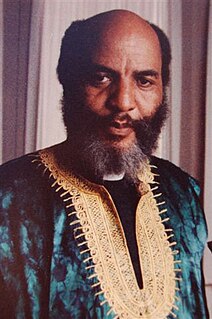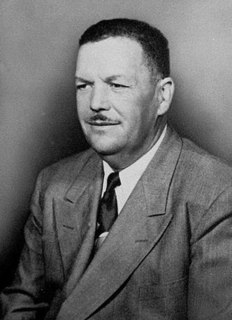Related Research Articles

The civil rights movement was a political movement and campaign from 1954 to 1968 in the United States to abolish institutional racial segregation, discrimination, and disenfranchisement throughout the United States. The movement had its origins in the Reconstruction era during the late 19th century, although it made its largest legislative gains in the 1960s after years of direct actions and grassroots protests. The social movement's major nonviolent resistance and civil disobedience campaigns eventually secured new protections in federal law for the civil rights of all Americans.

McComb is a city in Pike County, Mississippi, United States, approximately 80 miles (130 km) south of Jackson. As of the 2010 census, the city had a total population of 12,790. It is the principal city of the McComb, Mississippi Micropolitan Statistical Area.

The Student Nonviolent Coordinating Committee was the principal channel of student commitment in the United States to the civil rights movement during the 1960s. Emerging in 1960 from the student-led sit-ins at segregated lunch counters in Greensboro, North Carolina, and Nashville, Tennessee, the Committee sought to coordinate and assist direct-action challenges to the civic segregation and political exclusion of African Americans. From 1962, with the support of the Voter Education Project, SNCC committed to the registration and mobilization of black voters in the Deep South. Affiliates such as the Mississippi Freedom Democratic Party and the Lowndes County Freedom Organization in Alabama also worked to increase the pressure on federal and state government to enforce constitutional protections.
The Deacons for Defense and Justice was an armed African-American self-defense group founded in November 1964, during the civil rights era in the United States, in the mill town of Jonesboro, Louisiana. On February 21, 1965—the day of Malcolm X's assassination—the first affiliated chapter was founded in Bogalusa, Louisiana, followed by a total of 20 other chapters in this state, Mississippi, Arkansas, and Alabama. It was intended to protect civil rights activists and their families, threatened both by white vigilantes and discriminatory treatment by police under Jim Crow laws. The Bogalusa chapter gained national attention during the summer of 1965 in its violent struggles with the Ku Klux Klan.

The Southern Christian Leadership Conference (SCLC) is an African-American civil rights organization based in Atlanta, Georgia. SCLC is closely associated with its first president, Martin Luther King Jr., who had a large role in the American civil rights movement.

James Luther Bevel was a minister and a leader of the 1960s Civil Rights Movement in the United States. As the Director of Direct Action and of Nonviolent Education of the Southern Christian Leadership Conference (SCLC), he initiated, strategized, directed, and developed SCLC's three major successes of the era: the 1963 Birmingham Children's Crusade, the 1965 Selma voting rights movement, and the 1966 Chicago open housing movement. He suggested that SCLC call for and join a March on Washington in 1963. Bevel strategized the 1965 Selma to Montgomery marches, which contributed to Congressional passage of the 1965 Voting Rights Act.
The Council of Federated Organizations (COFO) was a coalition of the major Civil Rights Movement organizations operating in Mississippi. COFO was formed in 1961 to coordinate and unite voter registration and other civil rights activities in the state and oversee the distribution of funds from the Voter Education Project. It was instrumental in forming the Mississippi Freedom Democratic Party. COFO member organizations included the National Association for the Advancement of Colored People.

Vernon Ferdinand Dahmer, Sr. was a leader in the Civil Rights Movement and president of the Forrest County chapter of the NAACP in Hattiesburg, Mississippi. He was murdered by the White Knights of the Ku Klux Klan for his work on recruiting African Americans to vote.
The Freedom Singers originated as a quartet formed in 1962 at Albany State College in Albany, Georgia. After folk singer Pete Seeger witnessed the power of their congregational-style of singing, which fused black Baptist a cappella church singing with protest songs and chants, their performances drew aid and support to the Student Nonviolent Coordinating Committee (SNCC) during the emerging civil rights movement. Seeger suggested The Freedom Singers as a touring group to the SNCC executive secretary James Forman as a way to fuel future campaigns. As a result, communal song became essential to empowering and educating audiences about civil rights issues and a powerful social weapon of influence in the fight against Jim Crow segregation. Rutha Mae Harris, a former freedom singer, speculated that without the music force of broad communal singing, the civil rights movement may not have resonated beyond of the struggles of the Jim Crow South.

Charles Sherrod is an activist who was born in Surry, Virginia and was raised by his Baptist grandmother. When he was a young boy he sang in a choir and attended Sunday school at a Baptist church. When he was older he became a preacher at Mount Olivet Baptist Church where he often preached to children. Sherrod first took part in the Civil Rights Movement after the Supreme Court desegregated schools in the Brown v. Board of Education case. In 1954, Sherrod first participated in sit-ins at white churches with the goal to desegregate them. He was a key member and organizer of the Student Nonviolent Coordinating Committee (SNCC) during the Civil Rights Movement. He became the first SNCC field secretary and SNCC director of southwest Georgia. His leadership there led to the Albany Movement. He also participated in the Selma Voting Rights Movement and in many other arenas of the 1960s movement era. However, Sherrod's activism continued throughout his life through the Southwest Georgia Project for Community Education (SWGAP), New Communities, and as an Albany City Council Member. He is married to former U.S. Department of Agriculture official Shirley Sherrod, who assisted with the Albany Movement and with SWGAP. Together they had two children.
Hollis Watkins is an activist who was part of the Civil Rights Movement activities in the state of Mississippi during the 1960s. He became a member and organizer with the Student Nonviolent Coordinating Committee (SNCC) in 1961, was a county organizer for 1964's "Freedom Summer", and assisted the efforts of the Mississippi Freedom Democratic Party to unseat the regular Mississippi delegation from their chairs at the 1964 Democratic Party national convention in Atlantic City. He founded Southern Echo, a group that gives support to other grass-roots organizations in Mississippi. He also is a founder of the Mississippi Veterans of the Civil Rights Movement.
Henry "Hank" James Thomas is an African American civil rights activist and entrepreneur. Thomas was one of the original 13 Freedom Riders who traveled on Greyhound and Trailways buses through the South in 1961 to protest racial segregation, holding demonstrations at bus stops along the way.

Charles E. "Charlie" Cobb Jr. is a journalist, professor, and former activist with the Student Nonviolent Coordinating Committee (SNCC). Along with several veterans of SNCC, Cobb established and operated the African-American bookstore Drum and Spear in Washington, D.C. from 1968 to 1974. Currently he is a senior analyst at allAfrica.com and a visiting professor at Brown University.
Charles "Chuck" McDew was an American lifelong activist for racial equality and a former activist of the Civil Rights Movement. After attending South Carolina State University, he became the chairman of the Student Nonviolent Coordinating Committee (SNCC) from 1960 to 1963. His involvement in the movement earned McDew the title, "black by birth, a Jew by choice and a revolutionary by necessity" stated by fellow SNCC activist Bob Moses.
Charles "Chuck" Neblett is a civil rights activist best known for helping to found and being a member of The Freedom Singers.
The Mississippi Freedom Project (MFP) is an archive of oral histories collected by the Samuel Proctor Oral History Program at the University of Florida. The ongoing project contains 100+ interviews online and focuses on interviews with civil rights veterans and notable residents of the Mississippi Delta. The collection centers on activism and organizing in partnership with the Sunflower County Civil Rights Organization in Sunflower, Mississippi.
David J. Dennis is a civil rights activist active in the movement since the 1960s. He grew up in the segregated area of Omega, Louisiana, and worked as co-director of the Council of Federated Organizations (COFO), as director of Mississippi's Congress of Racial Equality (CORE), and as one of the organizers of the Mississippi Freedom Summer of 1964. Dave Dennis worked closely with both Bob Moses and Medgar Evers as well as members of SNCC, the Student Nonviolent Coordinating Committee. Dennis' first involvement in the Civil Rights Movement was at a Woolworth sit-in organized by CORE and he went on to become a Freedom Rider in 1961. More recently Dennis has put his activism toward a new project, the Algebra Project, which is a nonprofit organization run by Bob Moses that aims to improve the mathematics education for minority children. Dennis also speaks about his experiences in the movement through an organization called Dave Dennis Connections.

Brenda Travis is an African American veteran of the Civil Rights Movement from McComb, Mississippi whose imprisonments for protesting a segregated bus station and participation in a peaceful high school walk out in 1961 helped catalyze public sentiment against segregation.

Gwendolyn Zoharah Simmons, formerly Gwendolyn Robinson, is an Assistant Professor of Religion at the University of Florida, where she researches Islamic feminism and the impact of Sharia law on Muslim women. She was a civil rights activist, serving as a member of both the Student Nonviolent Coordinating Committee (SNCC) and the Nation of Islam (NOI). Simmons has received a number of prestigious fellowships, including a Fulbright Fellowship, USAID Fellowships, and an American Center of Oriental Research Fellowship.

John Robert Zellner is an American civil rights activist. He graduated from Huntingdon College in 1961 and that year became a member of the Student Nonviolent Coordinating Committee (SNCC) as its first white field secretary. Zellner was involved in numerous civil rights efforts, including nonviolence workshops at Talladega College, protests for integration in Danville, Virginia, and organizing Freedom Schools in Greenwood, Mississippi, in 1964. He also investigated the murders of Chaney, Goodman, and Schwerner that summer.
References
- 1 2 3 "Curtis (Hayes) Muhammad". Urban School of San Francisco. March 24, 2011. Retrieved February 7, 2019.
- ↑ Marshall, James P. (2013). Student Activism and Civil Rights in Mississippi: Protest Politics and the Struggle for Racial Justice, 1960-1965. LSU Press. pp. 65–6. ISBN 978-0807149850.
- ↑ Marshall, James P. (2018). The Mississippi Civil Rights Movement and the Kennedy Administration, 1960. LSU Press. ISBN 978-0807168769.
- ↑ Hogan, Wesley C. (2013). Many Minds, One Heart: SNCC's Dream for a New America. UNC Press Books. pp. 231, 294. ISBN 978-0807867891.
- ↑ Joseph, P. (2010). Neighborhood Rebels: Black Power at the Local Level. Springer. pp. 202–5. ISBN 978-0230102309.
- ↑ "6 Theatre Workers You Should Know". American Theatre. October 2, 2017.